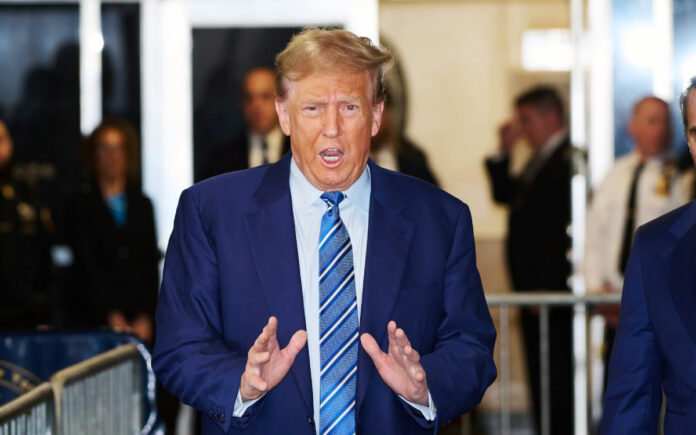New York: On Monday, Donald Trump’s legal team filed an appeal, urging the 2nd U.S. Circuit Court of Appeals to move his hush money case from New York state court to federal court. The former president, convicted in May of 34 felony counts related to falsifying business records, is seeking to shift the case, arguing that a federal court would allow him to halt the prosecution if he wins the 2024 presidential election.
This appeal follows U.S. District Judge Alvin Hellerstein’s September 3 ruling, which denied Trump’s request to move the case to federal court. Trump’s legal team, led by attorneys Todd Blanche and Emil Bove, emphasized in their brief that the U.S. Supreme Court’s July 1 decision protects former presidents from being prosecuted for official actions taken while in office. They argued that jurors in Trump’s state trial had improperly been shown evidence of his official presidential acts, violating constitutional protections.
The case revolves around a $130,000 hush money payment made by Trump’s former lawyer, Michael Cohen, to adult film actress Stormy Daniels before the 2016 election. Daniels claims she had a sexual encounter with Trump a decade earlier, a claim Trump has repeatedly denied. Manhattan District Attorney Alvin Bragg, a Democrat, pursued the case, resulting in Trump’s conviction in state court.
Trump’s lawyers contend that the state charges interfere with the powers of the presidency under the U.S. Constitution, arguing that criminal charges related to his presidential duties should be heard in federal court. If successful in transferring the case, Trump could potentially pardon himself or have the Department of Justice dismiss federal charges if he regains the presidency in the upcoming election. Presidential pardon authority, however, does not extend to state criminal charges.
Under U.S. law, criminal or civil cases brought against federal officials may be moved to federal court if they pertain to their official duties. Trump’s legal team insists that the prosecution’s use of evidence relating to his presidential actions during the trial was unconstitutional, claiming it jeopardizes the ability of future presidents to carry out their duties.
Also Read | Arab American PAC Declines Support for Both Trump and Harris Over Israel Stance
In May, a jury found Trump guilty of falsifying business records to conceal the hush money payment to Daniels, a payment intended to keep her from speaking publicly about the alleged affair before the 2016 election. Trump has vowed to appeal the conviction, with sentencing scheduled for November 26.
Trump’s attorneys believe the Supreme Court’s ruling on presidential immunity from criminal prosecution, which stemmed from an unrelated case involving his efforts to overturn the 2020 election, should lead to the dismissal of the hush money case. However, Judge Hellerstein rejected this argument, ruling that the charges pertained to Trump’s private actions, not official presidential duties.
Also Read | Over 200 Pro-Palestinian Protesters Arrested in Sit-In Outside New York Stock Exchange
Should the 2nd Circuit reject Trump’s appeal, his legal team may petition the Supreme Court to hear the case. The Court, which has a 6-3 conservative majority, includes three justices appointed by Trump.
The Manhattan District Attorney’s office has not yet responded to Trump’s latest legal brief, and no deadline has been set by the court for their response.



